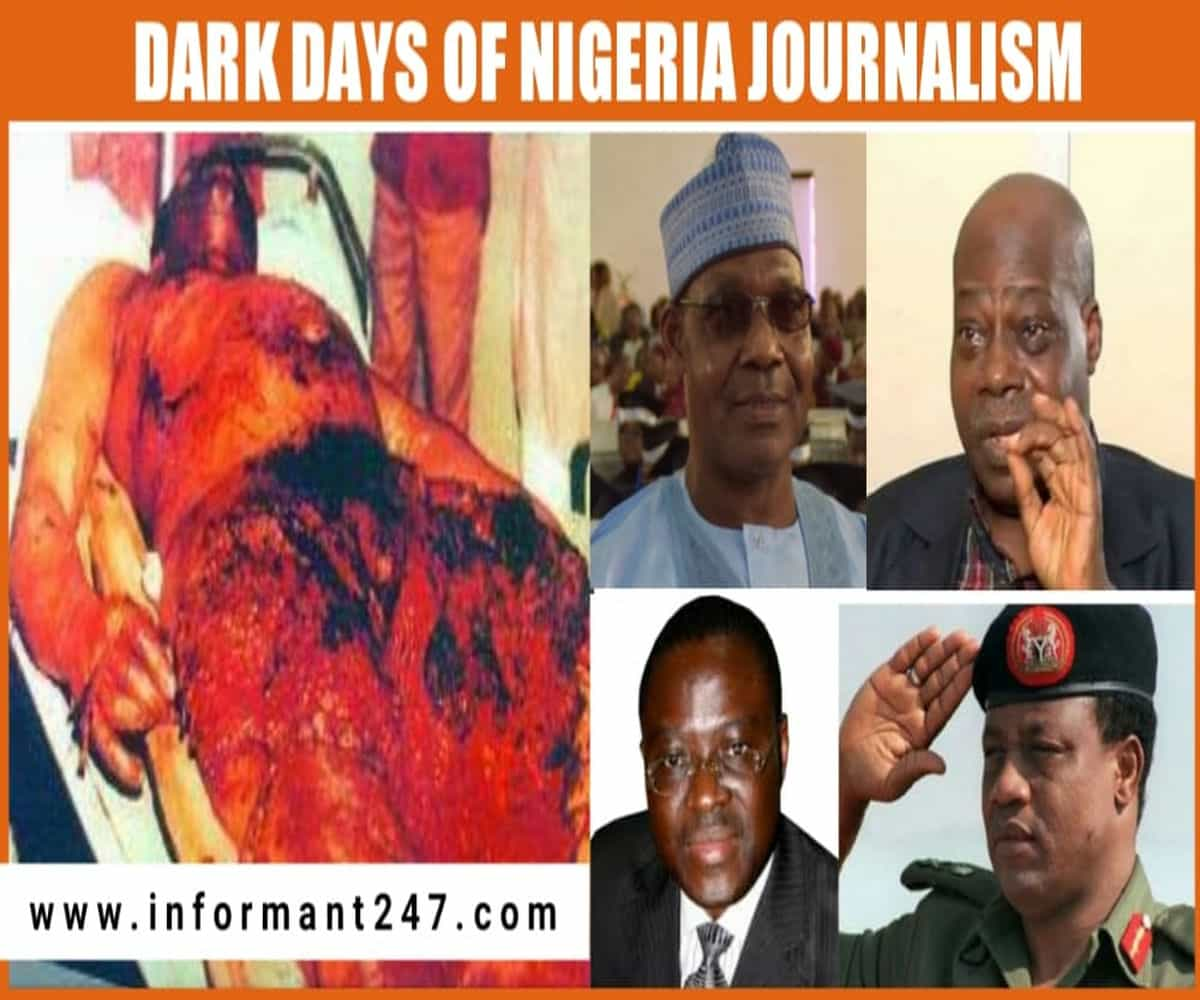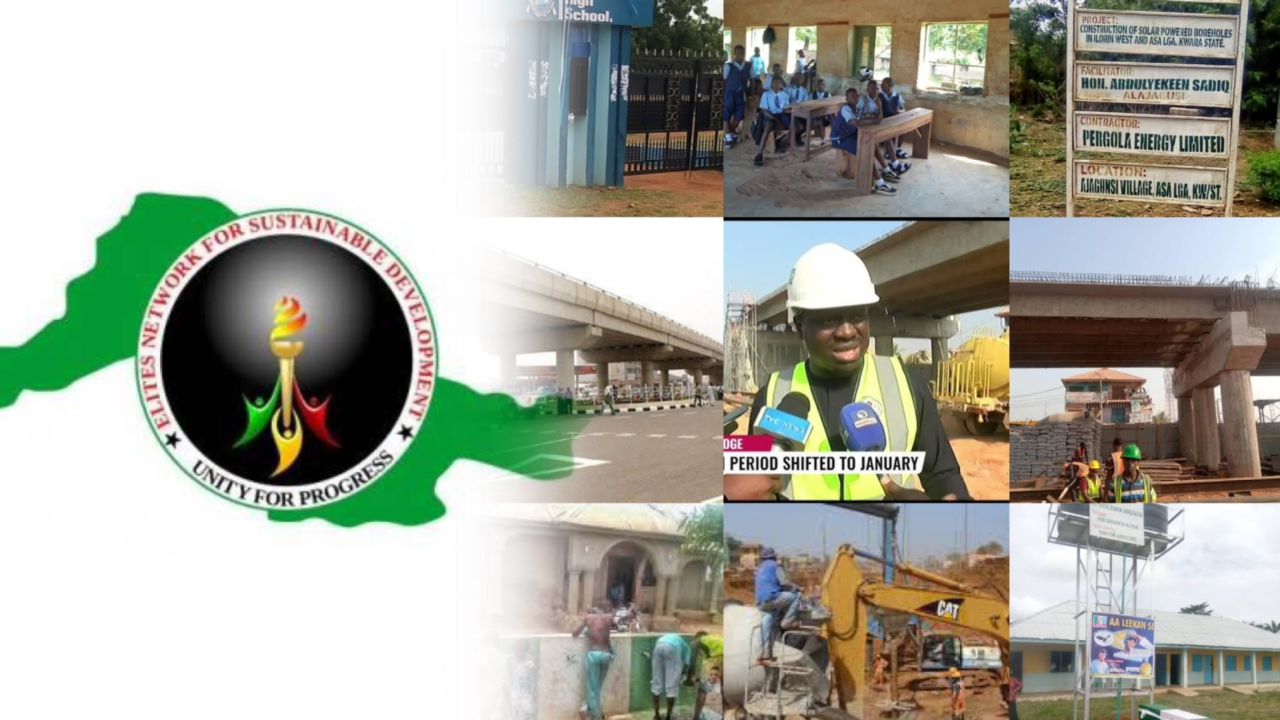By Bankole Taiwo
Historically, Journalism in Nigeria has gone a long way. In terms of its historical origin, journalism in Africa begins in countries like Sierra Leone, Ghana and Liberia, and was started by Anglican missionaries.
However, Journalism in Nigeria emerged when Reverend Henry Townsend, the founder of journalism in Nigeria, introduced the profession by publishing the first tabloid ‘Iwe Irohin Fun Awon Ara Egba’ on November 23, 1859, who wouldn’t have imagined how far his innovation would enlarge through the decades.
It’s been over a century and decades now, and journalism in Nigeria has transformed tremendously from a local-based report to a global report.
It’s quite unfortunate that African journalists faced several violations of their right to press freedom and freedom of expression in form of intimidation, harassment, threats, attacks, beatings, illegal detentions, arrests and imprisonment, and confiscation of equipment.
Some reporters were unlawfully accused of criminal charges, and Nigerian journalists as well are not excluded.
These are dark days for Nigerian media when Journalists operate under an atmosphere of difficult situations.
They operate in a situation where they are exposed to regularly attacked without insurance cover.
Journalism in Nigeria has recorded a huge number of important journalists who had lost their lives in the process of exposing the faces behind the mask of the evil doers.
As Nigerians, we would never forget October 19, when Mr Dele Giwa was assassinated by a letter bomb that was delivered to his house during the military regime of former Head of State, Ibrahim Babangida in 1986.
Giwa was killed by a letter bomb while having breakfast with Soyinka at his residence then located at 25 Talabi Street, Ikeja, Lagos, in 1986. He died at the age of 39.
He was lauded for his nature of exposing corrupt and illegal acts of the government and this earned him deserved recognition and later his trajectory ended.
In 1984, Giwa and fellow journalists Ray Ekpu, Dan Agbese and Yakubu Mohammed founded a news magazine called Newswatch.
WHAT TRANSPIRED ON 19TH OCTOBER, 1986
Its been over 36 years since the assassination of Mr Dele Giwa and yet not a single person has been accused or convicted for Giwa’s murder.
As for what happened on the day of the assassination, no one has been able to give a better explanation of what transpired at the scene except Kayode Soyinka’, the Publisher and Editor-in-Chief of Africa Today Magazine as he narrated.
At the hour of the murder, Kayode Soyinka was the only one with Dele Giwa and the only witness at the scene.
On October 19, 2020, 34 years after the killing of the journalist, Kayode Soyinka with the Saharareporters narrated how Dele received the letter bomb that murdered his friend….
According to an interview with Sahararepoter Soyinka said, “During my time at Newswatch, a horrific incident, unique to Nigeria occurred on 19 October 1986. It was the gruesome murder of Dele Giwa.
I miraculously survived the attack. I was on an official visit to Nigeria from London. As usual, I was staying with Giwa at his Lagos home, which was then on 25 Talabi Street, Ikeja.
That was when a parcel bomb was sent to him. The deadly package was delivered to him by his son, Billy, in his study, where we were having our breakfast.
“He took a quick look at the parcel and handed it over to me to see. I held it in my hand, looked at it, and handed it back to him.
When he took it back from me. He said, “This must be from the President.” The padded envelope, just slightly bigger than A4 in size, had marks that suggested it had been sent “from the cabinet office” in Lagos. It was addressed to “Chief Dele Giwa” – Though he was not a chief and with the instruction printed on it that it must be opened by the addressee only.
“Dele thought the envelope contained some documents which may help Newswatch with some stories. As he readjusted his chair and tried to tear the envelope open from the top left-hand corner, the envelope exploded.
It was a huge and horrific explosion. There was a big ball of fire. Dele absorbed the shock and most of the impact of the massive explosion on his body, as he was the person who held the envelope and had tried to open it.
I was saved by the huge mahogany L-shaped table on which we were eating.
“That table was so strong with a thickly padded lower part that it absorbed the impact of the explosion that would have affected me directly. Still, the explosion was powerful enough to lift me from my chair and threw me on the front of the door to the study. Dele Giwa was in deep shock. He was still alive, as helpers rushed in and helped to carefully drag him out of the rubbles of the explosion. He was rushed to First Foundation Hospital in Opebi, Owens by a close friend of ours, Dr Tosin Ajayi.
“I could have opened the parcel myself when Dele passed it to me to take a look at it. When he tried to open it and the explosion occurred. I was shocked that parcel bombing could happen in Nigeria.
We had never had such an experience of eliminating someone in such a dastardly manner in our history before. The thought of what our country was turning into was running through my mind even as I reeled from the shock. My hearing was impaired. I could not hear when people talked to me no matter how close they were to my ears.
Giwa’s murder threw many journalists and lovers of journalism, into panic and pandemonium. We can say his death marked the rebirth of journalism in Nigeria. With his death, journalists in the profession of journalism have come to accept the notion that for journalists, normality is anathema,that’s, If they cannot be squared, they must be squashed.
WHY WAS HE ASSASSINATED AND WHO ARE THE PERPETRATORS?
As earlier stated, up till now, no one has been convicted for the murder of Dele Giwa due to conspiracy over the decades. The perpetrators of the assassination have been hidden in the dark for almost 36 years now and yet still breathing. This is a huge blow to Nigeria’s Journalism and a slap on our judicial system. It shows that Nigeria as a country still has a long way to go to reach the pinnacle of absolute justice.
Going by the given account on Dele Assassination by Wikipedia…On October 18, a day before the bombing of Dele Giwa, a staff of the DMI-Director Of Military Intelligence, had phoned Giwa’s house and asked for his office phone number from his wife Funmi. This same person from the DMI later called back to say he couldn’t reach Giwa at the office and then put Col Akilu, Directorate of Military Intelligence (DMI) on the line.
Ekpu (Giwa’s neighbour and colleague) alleges that Akilu asked Giwa’s wife for directions to the house and explained that he would love to stop by Dele’s house to check on him on his way to Kano and he also offered that the President’s ADC had something for Giwa.
The morning of the following day, Giwa phoned Akilu to know why he was calling his phone the previous day. Akilu was alleged to have explained that he only wanted to tell Giwa that the matter had been resolved.
According to Ekpu, says Giwa replied to Akilu that it wasn’t over. Akilu then told Giwa that there was no need for that and that he should consider the matter resolved. About 40 minutes after the telephone conversation with Akilu, a package was delivered to Giwa’s house.
According to Billy (Giwa’s son) who delivered the package to his father claimed that the parcel had the seal of the Nigerian Coat of Arms with the name “Chief Dele Giwa” written on the parcel.
By the time Dele received the parcel, he was with Kayode Soyinka (London Bureau Chief of Newswatch). The package exploded on Dele Giwa’s lap, and inflict several wounds on him and temporarily deafening Soyinka.
He was rushed down to the hospital, but he eventually died due to the fatal wound.
After several investigations to unveil the murderer of Giwa, conspiracy theories arose to explain why he was murdered.
Among these theories, the most popular was linked to Gloria Okon a Lady who was arrested in 1985 at the Aminu Kano International airport on suspicion of drug smuggling.
Gloria Okon was a drug smuggler and allege working for highly placed Nigerians and in particular the wife of General Ibrahim Babangida who was then the Minister of Defence in the regime of General Muhammadu Buhari.
The theory goes on that Babangida flew Okon out of detention to the United Kingdom, sold the public the lies and rumour of her death and that Dele Giwa on a trip to the UK met with Okon where she told him her story.
With the information he got from her, Giwa tried to blackmail the then Military President, Ibrahim Babangida and this was why he was killed.
In 2001, General Ibrahim Babangida was summoned by the court to testify to Giwa’s murder, but he refused to appear in court.
Babangida, went further to obtain an order restricting the commission from summoning them to appear before it. The arrest warrant was not issued because of the overall interest in national reconciliation.
These are just conspiracy theories which do not validate the real conspirator of the assassination.
WHAT CHANGE?
Adebola Makinde, a young upcoming journalist and a student of the University of Ilorin shared her thoughts with me on what she observed about journalism being practised in Nigeria today.
She said…”Dele Giwa’s assassination back in 1986 happened in the second republic when Nigerian Journalists of that period focused their writing more on politics. It definitely would make them (Journalists) targeted, more so, it was a military era.
In contemporary times, Journalism is still more of the uncertainty that comes with writing a report or a story that might take your life and even destroy your home.
I’ll like to exemplify the movie: King of Boys where a particular journalist would put himself in trouble all because he was looking for the truth.
To be honest, that was the Journalism we had back then or is it that I can’t perceive that kind of courage in this modern day.
Let’s leave the fact that press freedoms aren’t solid yet, many Journalists, even when given a chance of expression would only look for cheaper news to sell to the public, trying to play safe.
Of course, there are expensive news that makes the audience think about your safety. The kind of practice we have now is keeping decency away from media houses”…Adebola Makinde said
Nowadays, journalists are easily corrupted, and in most cases, it is because they are often very badly paid. Many earn less than 5,000 naira (about 63 dollars) a month which is not even enough to get a room in Lagos.
The perfect definition of a righteous journalist can be seen in the life of Dele Giwa and a decayed judicial system of the country, which continues to fail the masses.
I believe Dele Giwa lives deep in every journalist who pursues professionalism and extols the virtues of excellence.
The death of Dele Giwa ended the ‘state of grace’ which the then military regime had enjoyed in the beginning in form of intimidation, harassment, threats, attacks, beatings, illegal detentions, arrests and imprisonment, confiscation of equipment, unlawfully criminal charges.
Helping one another to further their common cause for unity and justice, human rights activists and Journalists now work hand-in-hand.
Read Also: CHICAGO BOYS OF 1941
Checkout: Queen Amina: The Warrior King of Zaria


